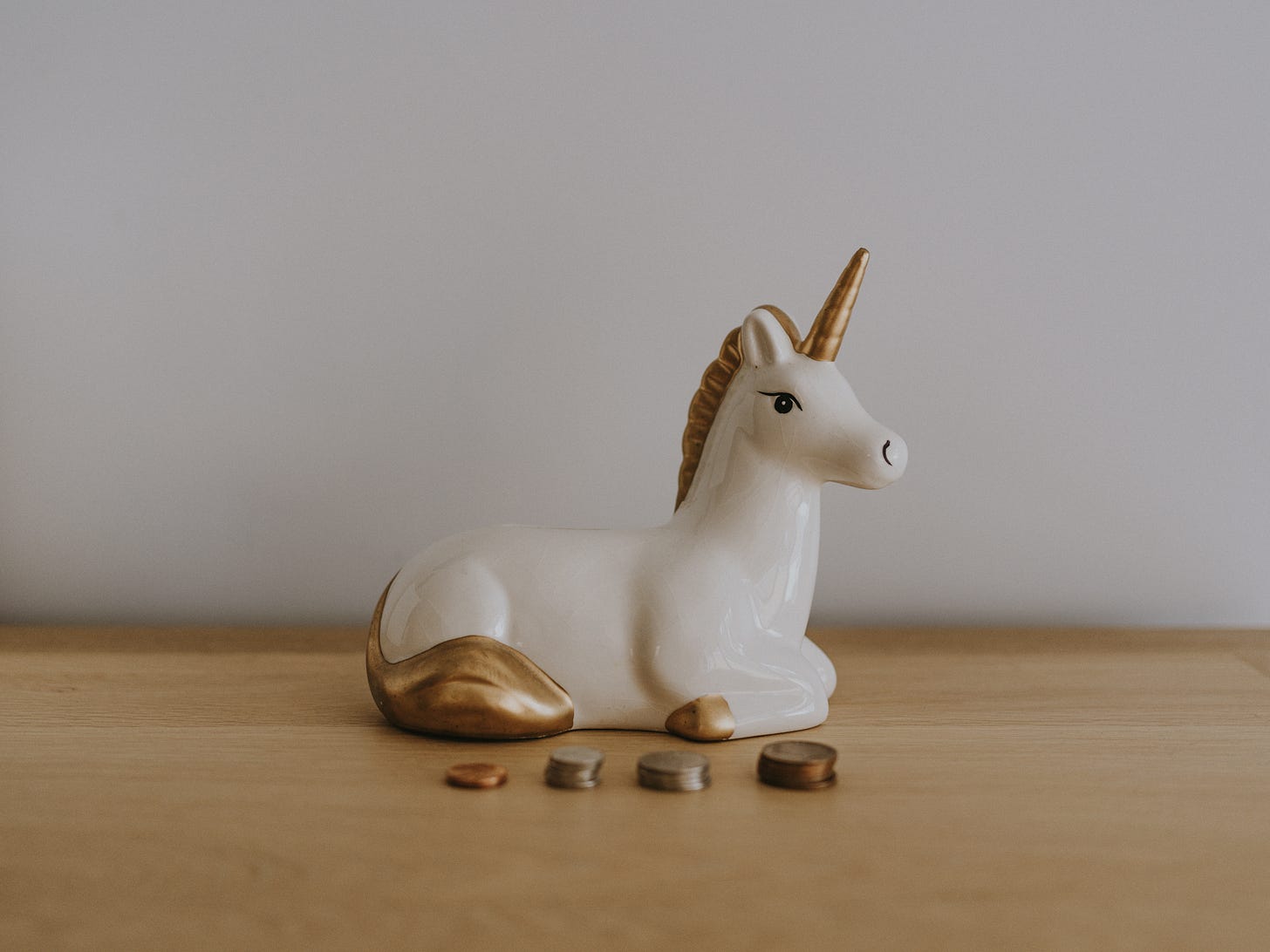In the fairy world, a unicorn is a mystical creature. Its very beautiful, has magical powers, can fly & is quite rare.
In the business world, a unicorn refers to a startup company which has a VALUATION OF > $1BILLION. These ‘unicorns’ are supposed to be [extremely] high growth companies with an idea that has the potential to transform the world.
You don’t want to miss out on the next Apple or the next Amazon of the world, do you?
The problem is, how do you identify such companies early on? Venture Capitalists have got a simple solution - play the volume game.
The VC model
The venture capital model is simple. Bet on new ideas & new technologies. 90% of the companies in the portfolio will fail. The 10% that succeed, will cover all the losses and then some.
Step 0: Raise money from HNIs/Institutions looking for extraordinary returns and set up a Fund.
Step 1: Identify an industry with a lot of potential and high growth.
Step 2: Shortlist startups with decent traction and founders who know what they’re building.
Step 3: Pump money into the company, get the company to grow their revenues 5x every year. [burning a lot of cash in the process, but that doesn’t matter because of the availability of easy money]
Step 4: Build excitement around the company, and pump more money into the startup at a much higher valuation. More revenue growth. More cash burn.
Step 5: Exit. Either get the company to go for an IPO. Or sell your stake to an incoming investor who ‘believes’ in the potential of the company.
Step 6: Rinse & repeat.
The question is not IF but WHEN
A lot of startups are going to fail. The VC model ensures that a lot of startups that shouldn’t get funded, get funded.
I read an article which talks about the 15 biggest money losing startups in the US, which raised $93.8B and have cumulatively lost $135.1B.
Back home, recently listed startups have eroded > 3 lakh crore rupees in investor wealth. BYJU’s which is India’s most valuable startup, published its FY21 financials reporting massive losses.
The VC industry itself has been struggling, with Softbank - one of the biggest proponents of the startup industry, reporting a quarterly loss of $23.4B.
With rising interest rate environment, the flow of ‘easy money’ will reduce. Startups will need to find ways to survive. Massive layoffs. Closing down unprofitable segments. If nothing works, filing for bankruptcy.
Ultimately, the buck stops at some point. If you can’t make profits, you’re dead.


